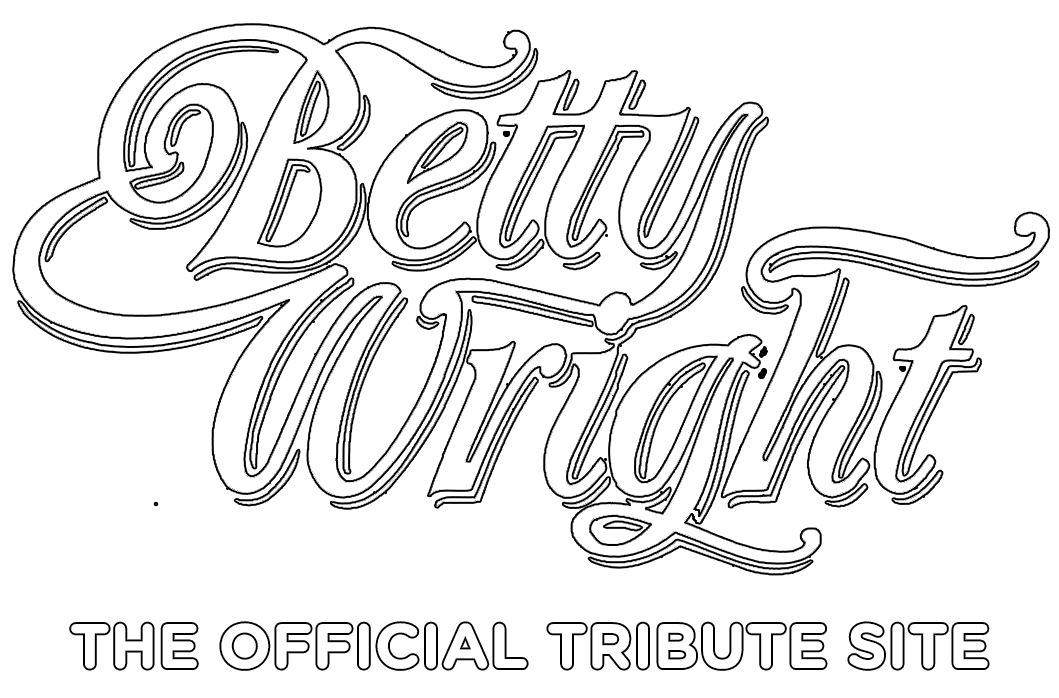Discography
Hard to Stop (1973)
Tracklist
I Am Woman
Sweet Wonder
The Experts
We the Two of Us
Let Me Go Down
Gimme Back My Man
Who'll Be the Fool
The Babysitter
If You Think You've Got Soul
It's Hard to Stop (Doing Something When It's Good to You)
Stream
Apple Music / Amazon / Tidal / YouTube Music
About the Album
by Jason A. Michael
For Betty’s third album, Hard to Stop, production duties would be split between Willie Clarke, Clarence Reid and Steve Alaimo once again. Clarke and Reid produced five the tracks, Clarke and Alaimo produced three and Clarke would produce the final two on his own. Only two singles would be culled from the album, although as was their tradition, the powers that be would release non-album singles both before the album’s release and after it.
Babysitter (Alston 4614) backed with Outside Woman, another track that did not make the album, was released at the end of summer 1972 – almost a full year before Hard to Stop would be issued. The Babysitter, in this case, was just another Clean Up Woman, a “16-year-old chick [who] walked in with a shirt up to her waist. She had a truckload of you know what and all of it in his face.” While not an original theme, the song was downright catchy and that probably helped it climb to #6 R&B/#46 Pop. Outside Woman, for its part, was a throwback to the 60s written by Clarke-Reid that warned women to start loving him like you’re his outside woman if you want him to treat you like a wife.
The second single and title track, It’s Hard to Stop (Doing Something When It’s Good To You) (Alston 4617), is about as funky as Betty had gotten up to this point. Once again, Betty is singing the blues over a man who has done her wrong that she can’t seem to let go. A Clarke-Reid-Wright composition, the groovy guitar in the song, played by Little Beaver, is basically Betty’s duet partner matching her almost line for line. The song was backed with Who’ll Be the Fool, a slow track composed by Clarke-Reid and Harry Wayne Casey that features a smoking sax solo by Gerald Smith.
I Am Woman, which starts the album off, was a pop smash for Helen Reddy in 1971 and was written by the singer and Ray Burton, a musician and singer and, like Reddy, a fellow Australian. Reddy would win a Grammy for the song in 1972 for the category Best Pop Vocal Performance Female. Betty decided to record the song as a nod to Reddy who had invited Betty to guest star on her short-lived variety series The Helen Reddy Show.
Betty, of course, had sung Clean Up Woman on the show in the summer of 1973 and, once back in Miami, quickly recorded her own version of I Am Woman. Produced by Clarke and Alaimo and arranged by Betty and Willie “Little Beaver” Hale, Betty gives a song a sense of soulful drama that Reddy likely couldn’t have imagined when she wrote and recorded it. Betty starts off with a slowly spoken monologue before letting loose midway through the first verse. The tempo quickens and Mike Lewis’s horns, as always, provide a great compliment to Betty’s voice. Betty always make you believe what she is singing, but she is especially confident on this track.
Sweet Wonder is song written by Clarke, Betty and Joanne Shelby, which Clarke produced and Shelby arranged. The song was one of four Betty co-writes on the album. On this track, you can clearly hear Harry Wayne Casey, a new TK staffer who would soon become known to the world as K.C. of the Sunshine Band, on backing vocals. At this point, doing odd jobs at the label, including a stint as Betty’s secretary, Casey was happy to record when and however he could. Other backing vocalists here include Betty’s sister Jeannette Wright (whom Casey would actually soon produce as Jeannette Holloway), Shelby and The Perfections. The song talks about a man who treats Betty so good that she calls him Sweet Wonder.
The Experts is basically a throw away written by Clarke and Reid. In it Betty laments that “if only I could learn to love like the experts do” she’d be able to keep her man’s attention. But who among us is an expert in love? Betty, though, can breathe life into even the most banal lyric and she does so here with ease. We the Two of Us, written by Betty and Clarke, is notable for notable for its organ arrangement and its lyrical optimism. “You and me must see our love is stronger than the Rock of Gibraltar and you and me we’re gonna make our way up to that altar.”
Songwriter, producer and musician Al Kooper is responsible for writing Let Me Go Down and playing piano on the track. This is Betty at her most serious and vulnerable sounding as love weary as a woman twice her age as she begs to have her soul set free. The song is a precursor to You Can’t See For Lookin’, which Betty would write herself and record a few year down the line. Billy Kennedy, who’d had a regional hit on Thelma Records in 1965, This is a Groovy Generation (T-109), wrote Gimme Back My Man and he and Betty arranged the song together. Lastly, If You Think You’ve Got Soul is a challenge laid down by Clarke-Reid who both wrote and produced it. At just barely over 2 minutes in length, Betty talks about Paradise Island and encourages “if you think you got soul, bring it on over. Ya mon!”
Before Betty would release her next album, 1974’s Danger High Voltage, Alston would release three additional non-album singles. The first Let Me Be Your Lovemaker, backed with Jealous Man, became Betty’s third Top 10 hit (#10 R&B/#55 Pop). A Betty classic, she’s bold as ever declaring “I know you don’t think I’m ready, but open your eyes and see. As sure as my name is Betty, I can love away all your misery.” One listen, and you’ll certainly believe she can.
The second non-album single was It’s Bad for Me To See You backed with One Thing Leads to Another. It climbed only as high as #66 R&B. And the third, Secretary, backed with Value Your Love, is the latest in the way of Clean Up Woman follow-ups. Only this time it’s not the Babysitter you need to watch out for, it’s his secretary. The single just missed the Top Ten coming in at #12 R&B/#62 pop.


